From 1915 to 1934, the United States occupied Haiti under the guise of ensuring stability and protecting it from European interference. However, according to the New York Times, evidence from decades of diplomatic correspondence, financial records and historical analysis reveals a more menacing driver behind the occupation: Wall Street! Specifically, National City Bank, now Citigroup, played a central role in pushing for US intervention in Haiti, driven by the desire to secure financial dominance over the Caribbean state to expand its business beyond US borders.
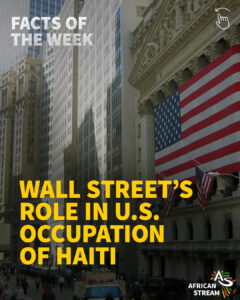
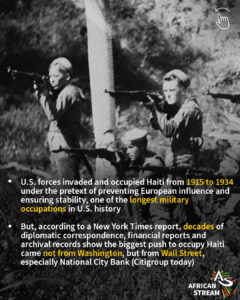
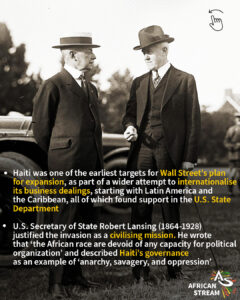
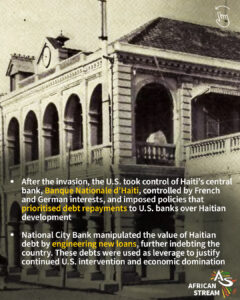
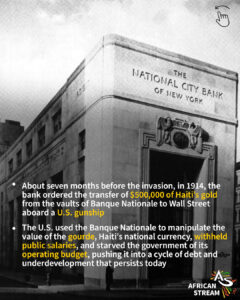
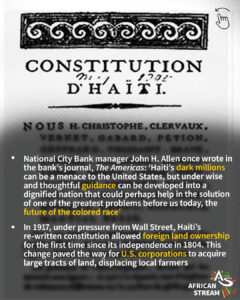
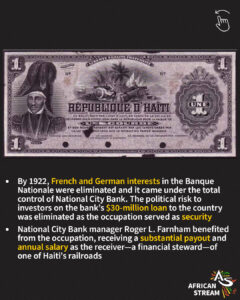
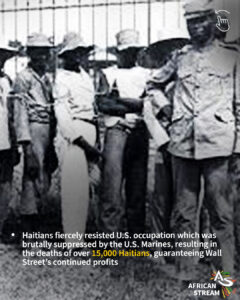
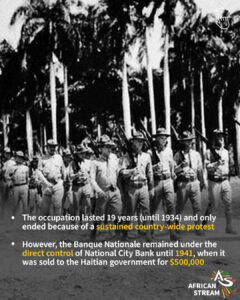
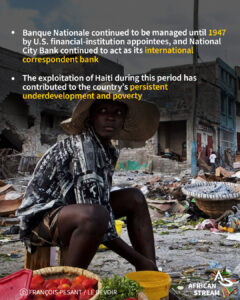
In 1914, a year before the invasion, National City Bank orchestrated the seizure of $500,000 in gold from Haiti’s treasury. This aggressive financial intervention destabilised Haiti’s economy and laid the groundwork for US control. US Marines invaded Haiti seven months later, in 1915, but the occupation primarily served to protect and expand Wall Street’s investments. National City Bank assumed control of Haiti’s central bank and redesigned Haiti’s financial system to benefit US economic interests.
The occupation reshaped Haiti’s economy, transforming it into a tool for Wall Street profiteering. Infrastructure projects during the occupation primarily served US business interests. The occupiers redirected export industries like sugar to benefit US corporations. Meanwhile, much of Haiti’s revenue was funnelled toward debt repayment to US banks, leaving little for national development.
This week’s Facts of the Week lays out this history and dismantles the narrative that US intervention was ever well-meaning. Instead, it was a calculated move to use Haiti as a pawn for Wall Street’s imperialist agenda, a stark reminder of the intersection between financial greed and systemic oppression.
SOURCES
https://www.nytimes.com/2022/05/20/world/haiti-wall-street-us-banks.html
https://haitiforever.org/windowsonhaiti/am-occup.htm
https://projects.iq.harvard.edu/files/glb_cap_crbn_prsm/files/hudson_rhr_national_city_haiti.pdf?m=1458224302#:~:text=Under%20Stillman%2C%20National%20City%20Bank,%2C%20most%20importantly%2C%20Standard%20Oil.
